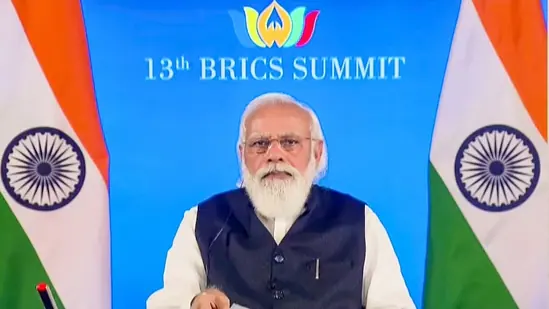China is combating terrorism, says Indian MEA
Ahead of the BRICS (Brazil-Russia-India-China-South Africa) Summit, the Indian Prime Minister Narendra Modi has said that the nations should understand each other's security concerns and provide mutual support in the designation of terrorists, asserting that this sensitive issue should not be "politicised".
Moreover, PM Modi commented at the summit of the BRICS, just days after China blocked a joint proposal by India and the US to designate Pakistan-based terrorist Abdul Rehman Makki as an international terrorist under the provisions of the UN sanctions committee.
Besides PM Modi, the two-day summit was participated by Chinese President Xi Jinping, Russian President Vladimir Putin, Brazil's Jair Bolsonaro and South African President Cyril Ramaphosa.
In a statement at the end of the China-hosted summit, the MEA on Friday provided the details of the prime minister's suggestions and comments during the deliberations.
"The Prime Minister also noted that as BRICS members we should understand security concerns of each other and provide mutual support in the designation of terrorists; this sensitive issue should not be politicised," the MEA said.
Moreover, After China blocked the proposal to designate Makki, Central Govt. sources said that Beijing's decision runs counter to its claim of combating terrorism and signals its "double standards".
Makki has been involved in raising funds, recruiting and radicalising youths to resort to violence and planning attacks in India, particularly in Jammu and Kashmir, they said.
Not for the first time China has placed hindrances on the listing of known terrorists as it had repeatedly blocked proposals to designate Maulana Masood Azhar, the chief of Pakistan-based and UN-proscribed terrorist entity Jaish-e-Mohammed (JeM).
While taking notes from the BRICS decision on this note, the leaders expressed strong condemnation of terrorism in all its forms "whenever, wherever and by whomsoever committed".
"We recognise the threat emanating from terrorism, extremism conducive to terrorism and radicalisation. We are committed to combating terrorism in all its forms and manifestations, including the cross-border movement of terrorists, and terrorism financing networks and safe-havens," it said.
The summit said the states have the primary responsibility in combating terrorism with the United Nations continuing to play a central and coordinating role. "We reject double standards in countering terrorism and extremism conducive to terrorism," it said.
"We reaffirm our unwavering commitment to contribute further to the global efforts of preventing and countering the threat of terrorism based on respect for international law, in particular the Charter of the UN and human rights," it added.




The Brief. Sign up to receive the top stories you need to know right now.